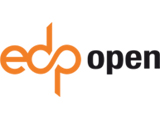
EDP Open, the Open Access publishing arm of EDP Sciences, has today released the results of a survey to appraise attitudes toward Open Access amongst learned society publishers.
The survey was answered by 33 learned societies and the results were further supplemented by a focus group held at the annual UKSG meeting in Harrogate in April.
Key findings include:
- Learned societies overwhelmingly agree that Open Access will inevitably place some learned societies’ journals into financial jeopardy.
- Competing with large Open Access specialist publishers was also considered a significant challenge for learned societies.
- Gold Open Access is the Open Access method that is least offered by learned society journals, however nearly two-thirds of learned societies indicated that they would like to be offering this option.
- More than ever before, with so many journals being published Open Access of dubious origin, learned societies should look to endorse content with a stamp of quality and authority.
- Collaboration between learned societies could help in the transition to Open Access, by pooling resources and sharing complex tasks.
- Two-thirds of all learned societies are also looking for support on best approach to OA, and compliance with funder mandates.
“We wanted to undertake this research to help us more fully understand learned society attitudes toward Open Access,” said Jean-Marc Quilbé, President of EDP Sciences. “As a learned society-owned publisher ourselves, we face many of the same issues. This is why we have launched EDP Open, as a vehicle through which learned societies can collaborate and share resources and develop opportunities that are unique to them and their communities.”
Although the survey results reveal concerns amongst learned societies relating to their traditional activities and revenue streams, there was also enthusiasm for the potential of Open Access to increase dissemination of research information, particularly to poor and developing countries. Learned societies also felt there was a strong opportunity for increasing inter-disciplinary access to research information and for the acceleration of research impact.
“Open Access is here to stay,” continued J.-M. Quilbé. “We believe it’s critical that learned societies don’t get left behind as bigger, well-resourced publishers continue to launch new Open Access titles. It is our intention that EDP Open will help level the playing field by providing services to learned societies to help them compete effectively and maintain their valuable role of providing authoritative content to their communities and beyond.”
























